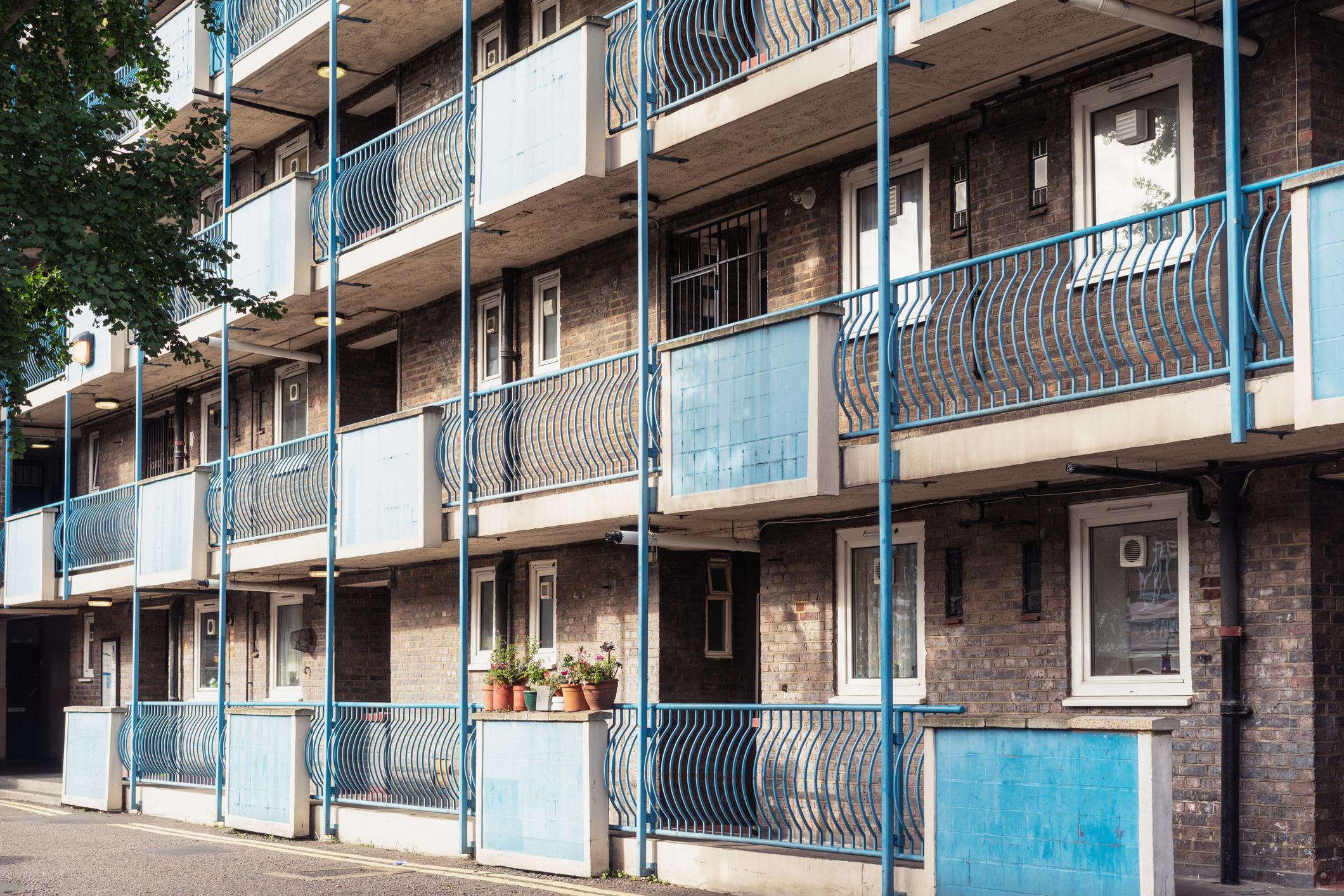Council housing sell-off continues as government fails to replace most homes sold under Right to Buy
Home ownership has fallen since the policy was introduced and flats are ending up in the hands of private landlords, writes Jon Stone


Two-thirds of the council homes sold off under Right to Buy are still not being replaced by new social housing despite a promise by the government, official figures show.
Housing charities warned that enough “desperately needed” genuinely affordable housing is simply not being built, with an overall net loss of 17,000 homes this year from social stock.
Since the policy was updated in 2012-13, 85,645 homes have been sold through the policy, but only 28,090 built to replace them, statistics from the Ministry of Housing, Communities and Local Government show.
Under Right to Buy, the government sells off council housing at discounts of up to £100,000 to tenants.
Despite pitching the policy as a way to get more people on the property ladder, overall home ownership has actually fallen significantly since it was introduced in the 1980s.
Previous studies have shown that around 40 per cent of flats sold under the policy since the 1980s have ended up in the hands of private landlords, who let the homes out to private tenants at higher rates. The proportion is thought to be even higher in areas of high housing pressure like London.
Councils warned ministers when the policy was updated that the steep discounts meant the money would not be enough to replace homes one-to-one, and that the very existence of the policy undermined their ability to finance housebuilding by making it impossible to reliably borrow against future rents.
The government officially committed to replace the extra homes sold due to an increase in discounts in 2012-13, but housing charities say the affordable sector cannot afford to bleed stock at all. The government is still around 7,000 homes short of its own target, which covers construction up to the third quarter of 2016-17 because councils are given three years to replace the sold stock.
Jon Sparkes, chief executive at homelessness charity Crisis, said: “These statistics demonstrate just how serious the current housing crisis is. What few social homes that are available are largely being removed from the market as part of Right to Buy, and the supply is not being replenished in line with this.
“People in desperately vulnerable circumstances are being left with dwindling housing options as a consequence of our threadbare social housing provision. This is all the more worrying considering the rise we expect in people being pushed into homelessness as a result of the pandemic.
Despite being desperately needed, our recent track record on building new social homes is atrocious
“To address this, we need to see the government suspend Right to Buy going forward and prioritisation for social housing being given to people who are homeless so they are able to better access what is currently available. Alongside this, we also need commitment to build significantly more social homes in the coming years to keep in step with demand.
“Ending homelessness in the UK is completely within our grasp, but requires a rethink of existing policies that stand in the way.”
In 2018 Theresa May announced that a long-standing borrowing cap preventing councils from building more homes would be lifting. A survey by the Local Government Association conducted in March 2019 found that a startling 93 per cent of councils were planning to use the extra headroom.
The Scottish and Welsh governments have already ended Right To Buy, citings its effect on the council housing stock.
Commenting on the Right to Buy figures, Polly Neate, chief executive of the housing charity Shelter, said: “The coronavirus pandemic has drummed into us the importance of having a safe home like nothing before. By the same token it’s made it crushingly clear that not enough people do – including the million-plus households stuck on social housing waiting lists. Many of whom are homeless or trapped in grossly overcrowded accommodation right now.
“Despite being desperately needed, our recent track record on building new social homes is atrocious. There was actually a net loss of 17,000 social homes last year, and as it stands Right to Buy isn’t helping. While some people have benefited from the scheme, the failure to replace the properties sold has deprived many others of a genuinely affordable social home.
“But the status quo can be changed. As the government plots its economic recovery from coronavirus, it could give councils the means they need to replace and build social housing. As well as helping to create jobs and get housebuilding going again, this would offer all those without one, their best shot at a safe home.”
Asked about the figures, a spokesperson for the Ministry of Housing, Communities, and Local Government said: “The government is committed to Right to Buy, which has helped nearly two million council tenants realise their dream of home ownership and get on the property ladder.
“Since 2010 we have delivered more homes for social rent – over 140,000 in total – compared to the number of homes sold under the Right to Buy scheme.”
The ministry’s statement is misleading, however, as the 140,000 figure refers to all social housebuilding rather than those homes built to replace housing sold under Right To Buy using receipts earmarked for this purpose.
Join our commenting forum
Join thought-provoking conversations, follow other Independent readers and see their replies
Comments